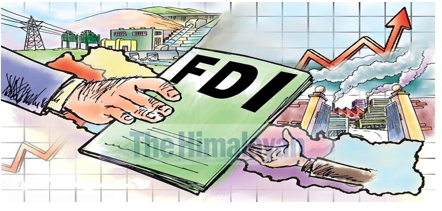INP-WealthPk
Ayesha Saba
Pakistan must review its investment strategy and prioritise sectors that promote long-term economic sustainability. By focusing on export-oriented industries, fostering technology transfer and supporting import substitution, the country can strengthen its economic resilience.

“The current investment focus, while addressing immediate infrastructure and energy needs, has done little to diversify Pakistan’s economic base or strengthen industries that could spur long-term growth,” notes Majid Shabbir, policy adviser at the Islamabad Chamber of Commerce and Industry. Talking to WealthPK, he said the overreliance on sectors that do not significantly contribute to job creation or export revenues is a missed opportunity. “The manufacturing and technology sectors have vast potential but remain underinvested. Instead of focusing on industries that are primarily driven by local demand, we should prioritise export-oriented industries that can bring in foreign exchange and create high-skilled jobs,” he added. Shabbir said Pakistan’s manufacturing sector, in particular, suffers from this neglect. He said that a robust manufacturing base is crucial for the country’s export-led growth strategy.
“However, due to a lack of investment in technological upgrading, skill development and infrastructure, the sector remains uncompetitive on the global stage. Local manufacturers continue to face challenges like outdated machinery, poor access to finance, and high production costs, all of which hinder their ability to expand their footprint in international markets.” The ICCI policy adviser pointed out that fostering technology transfer is crucial for enhancing productivity and competitiveness across various sectors. “Without the ability to adopt and develop new technologies, industries like agriculture and manufacturing will remain stagnant,” he stressed. Shabbir asserted that investors not only sought clear policies but also stability and consistency. “The foremost challenge is the prevailing policy uncertainty, characterised by frequent shifts in regulations and inconsistent government measures. This uncertainty erodes investor confidence and hampers long-term planning for potential investors.”
Meanwhile, an official of the Board of Investment told WealthPK on condition of anonymity that the country’s import substitution strategy has not received the attention it deserves. “We import a large number of consumer goods that could easily be produced locally if we have the right investment in place. This would not only reduce our import bill but also create employment opportunities.” The official said that with a growing trade deficit, Pakistan needs to focus on industries that can replace imports with locally produced goods. “Pakistan’s investment strategy must shift towards sectors that can reduce the country’s reliance on imported goods, especially in areas where domestic production could be a feasible alternative.”
Credit: INP-WealthPk




